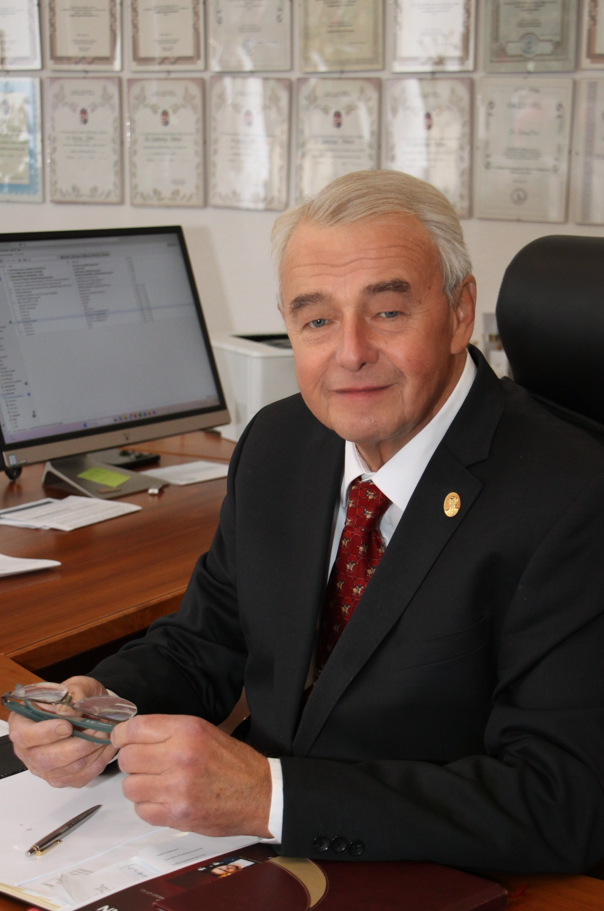“I was touched by all the love that students radiated towards me on my 70th birthday. “I certainly didn’t expect to arrive in a horse-drawn carriage at the university celebration, where my biographical book was presented and I began my third term as rector,” said Dr. Péter Sótonyi, with whom I spoke on the occasion of these events. Below is an excerpt from the interview.
GUSZTÁV BALÁZS
– My “secret” is simple: I love the students; they are my top priority. As a child coming from a rural area, I lived in a dormitory for over ten years, first as a student, then as a resident teacher. I’ve never forgotten what it’s like to be young, with all its challenges and joys. Even as a student, I was already teaching; during my postgraduate years, I gave private lessons, and I realized that the best way to learn is by teaching. As a teacher, I always remember what I struggled with during my studies, so I can put myself in the students’ shoes. I insist that first-year students from rural areas are housed in the dormitory because the community life helps them solve personal and academic problems and adapt to university life. I’ve been working at our Alma Mater for 51 years; it’s my second family. The students inspire me — they’re incredibly smart and wonderfully kind.
The book about your career reveals that your drive for “heartfelt, passionate, and professionally skilled” work is rooted in your parental home. I’m fortunate to have grown up at the meeting point of the Danube and the Leitha Rivers as a descendant of people from various Central European nations. Everyone contributed something to my personality, and I was open to everything. My grandfather helped anyone he could; as a devout member of the congregation, he climbed church towers in the Szigetköz region to install or repair electrical wiring for free, even at seventy. The town said that only Archduke Friedrich’s funeral drew as many people as my grandfather’s. What I got from my mother was love that withstood every trial. I admired my father’s perseverance and struggles after World War II. He was incredibly skilled; people said he was a man who turned whatever he touched into gold. In 1958, he joined the Anatomy Department of the Óvár Academy, where he taught for 40 years. Many of his teaching materials are still nearby in our department’s museum. As a true polymath, he is commemorated with a plaque on the Academy’s wall.
I’m fortunate to have grown up at the meeting point of the Danube and the Leitha Rivers as a descendant of people from various Central European nations. Everyone contributed something to my personality, and I was open to everything. My grandfather helped anyone he could; as a devout member of the congregation, he climbed church towers in the Szigetköz region to install or repair electrical wiring for free, even at seventy. The town said that only Archduke Friedrich’s funeral drew as many people as my grandfather’s. What I got from my mother was love that withstood every trial. I admired my father’s perseverance and struggles after World War II. He was incredibly skilled; people said he was a man who turned whatever he touched into gold. In 1958, he joined the Anatomy Department of the Óvár Academy, where he taught for 40 years. Many of his teaching materials are still nearby in our department’s museum. As a true polymath, he is commemorated with a plaque on the Academy’s wall.
I dare say I had a wonderful, perhaps even enviable childhood. From the age of 12 I rode horses every day, usually from 6 a.m. until school started, and again after school at the Magyaróvár riding academy, where I spent much of my life. I was tied to this place by friends and first loves.
My excellent riding coach, János Prutkay, a former artillery officer, instilled in me a love for horses and taught me discipline and perseverance with incredible rigour.
– Recommending the book titled “From Horsemanship to Veterinary Science” as a great reading for anyone, let’s return to Budapest! In your previous term, you aimed to implement structural reforms and greater autonomy, which you highlighted as a shared success during the April Senate session that elected you as rector.
– All the progress we have achieved in recent years is due to the relentless efforts of my colleagues who fought by my side all along and continue to serve our University with the utmost loyalty to this day. The structural reforms and the agreement with the ministry have made Hungarian-language education just as viable financially as foreign-language education. Salaries now exceed those from four years ago by 75%. I owe a debt of gratitude to our chief financial officer Ms. Bernadett Bendik, who ensures the conditions for this.
In my third term, I’d like to gradually introduce a 12th semester for veterinary education. I believe it’s crucial for students to complete their second practical semester in their chosen field of specialization, further enhancing the value of their degrees.
– Recently, the University of Veterinary Medicine got ranked in the top 150 globally in its field according to the GRAS (Global Ranking of Academic Subjects), alongside three other Hungarian university faculties. What does this mean for us? Will we experience slightly more tranquillity in our lives?
– The ranking indicates we are on the right path, but it also warns us not to compromise on educational quality. There is, and will not be, room for complacency because we’d fall behind immediately.
